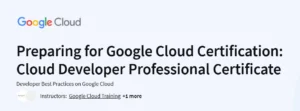What will you learn in Python Programming Certification Course
Understand Python fundamentals including data types, loops, conditionals, and functions
Work with data structures such as lists, dictionaries, sets, and tuples
Develop object-oriented programs using classes and inheritance
Handle file operations, exceptions, and use modules and packages
Perform data manipulation using Pandas and visualize data using Matplotlib
Build basic applications and scripts for automation and data analysis
Program Overview
Module 1: Python Basics
⏳ 1 week
Topics: Syntax, variables, data types, operators, input/output
Hands-on: Write simple scripts for arithmetic, input handling, and type conversions
Module 2: Data Structures & Functions
⏳ 1 week
Topics: Lists, tuples, sets, dictionaries, user-defined functions
Hands-on: Create nested data structures and perform list/dict operations
Module 3: Object-Oriented Programming
⏳ 1 week
Topics: Classes, objects, inheritance, encapsulation, polymorphism
Hands-on: Build a class-based Python project using OOP principles
Module 4: Modules, Packages & Exception Handling
⏳ 1 week
Topics: Importing modules, creating packages, try-except blocks
Hands-on: Create reusable modules and handle custom exceptions
Module 5: File Handling & Regular Expressions
⏳ 1 week
Topics: File I/O, reading/writing text files, regex patterns and matching
Hands-on: Build scripts to parse and analyze log files using regex
Module 6: Working with Data using Pandas
⏳ 1 week
Topics: DataFrames, series, data manipulation, filtering, merging
Hands-on: Clean and analyze datasets using Pandas
Module 7: Data Visualization with Matplotlib
⏳ 1 week
Topics: Line charts, bar plots, histograms, scatter plots
Hands-on: Visualize data trends and distributions using Matplotlib
Module 8: Capstone Project
⏳ 1 week
Topics: Apply all concepts to solve a real-world problem
Hands-on: Build a complete Python project with data analysis or automation use case
Get certificate
Job Outlook
Python is widely used in web development, data analysis, automation, and AI/ML
High demand for Python developers in finance, healthcare, education, and tech industries
Entry-level roles start at $70,000, while experienced Python developers can earn $120,000+
Freelance and remote work opportunities are widely available
Specification: Python Programming Certification Course
|
FAQs
- Python is beginner-friendly; no prior programming knowledge is needed.
- Basic computer literacy and understanding of logic helps.
- Familiarity with concepts like variables or loops is a bonus but not required.
- The course introduces programming gradually from fundamentals.
- Non-technical professionals can also grasp Python with consistent practice.
- Data Analyst, Data Scientist, and AI/ML Engineer roles often require Python skills.
- Web development with frameworks like Django or Flask becomes accessible.
- Automation and scripting tasks in IT departments are in demand.
- Python skills enhance opportunities in finance, healthcare, and analytics.
- Freelancing and project-based work using Python is also an option.
- Most courses include real-world projects for hands-on practice.
- You’ll learn to build small applications, scripts, or data analysis workflows.
- Exercises simulate workplace challenges for better understanding.
- Project work helps build a portfolio for job applications.
- Practice-focused learning ensures skills can be applied immediately.
- Certified professionals are often preferred for tech and analytics roles.
- Validation of skills can lead to higher salary offers or promotions.
- Python expertise is in demand, especially in AI, Data Science, and Automation.
- Freelancers can charge more for Python-based projects or automation tasks.
- Complementing Python with other skills like SQL or Tableau further boosts earning potential.
- Python’s syntax is simple and readable, ideal for beginners.
- It can be used for automating routine office tasks without deep coding.
- Business professionals can learn Python for data analysis and reporting.
- Learning Python improves problem-solving and logical thinking skills.
- Practical examples help non-technical users apply Python effectively in their work.





